About Center for Human Development – Springfield
CHD has several locations throughout the state and a few in neighboring Connecticut. The organization’s Springfield locations include a residential home for teens and a behavioral health center that offers alcohol and drug rehab and general mental health care. Staff at the behavioral health center treat teens and adults and work with individuals as well as families. Outpatient (OP) services include medication-assisted treatment (MAT) and counseling. The team at the Birnie Avenue office can help direct you to the appropriate services for your needs.
One of CHD’s most positive attributes is that they take a holistic, person-centered, and trauma-informed approach to care. They consider the many factors that can contribute to substance use and strive to help people address these through evidence-based approaches, including MAT, dialectical behavioral therapy (DBT) and eye movement desensitization and reprocessing (EMDR).
Additionally, they strive to meet folks where they are. As part of CHD’s commitment to accessibility, they offer telehealth counseling, which makes it easy to access therapy from anywhere, at a time that works for you. They have video and audio-only appointments for people of all ages, which are covered by most private insurances, as well as MassHealth and Medicare. Besides substance use, clinicians can help with topics such as grief, trauma, marriage and relationship conflicts, and gambling addiction.
Another of the Center for Human Development’s other notable qualities is that, since its founding more than 50 years ago, it has made a concerted effort to advocate for vulnerable populations, including older adults, children, and people in marginalized groups.
All staff members go through diversity and inclusion training to help them better understand the perspectives and needs of people from backgrounds different to their own. Additionally, staff are multicultural, multilingual, and fluent in sign language so clients feel safe, comfortable, and understood. The organization’s prevention programs help mitigate common addiction risk factors like adverse childhood experiences, financial insecurity, and barriers to education, while promoting children’s health and well-being.
Latest Reviews
Rehab Score
Gallery
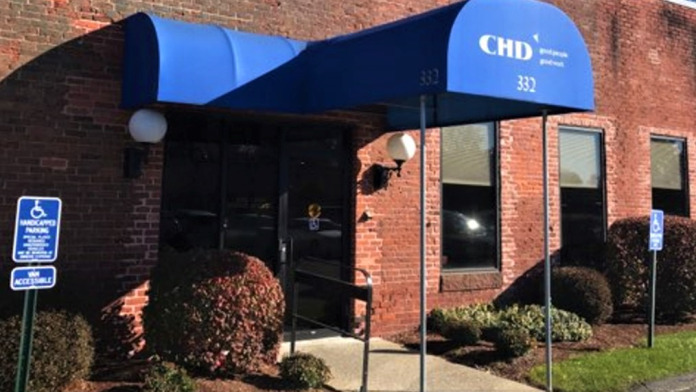

Other Forms of Payment
Self-pay involves paying for treatment out of your own pocket. You can use savings or credit, get a personal loan, or receive help from family and friends to fund your treatment. If you don't have insurance or your insurance plan doesn't cover a specific program, self-pay can help ensure you still get the care you need.
Addiction Treatments
Levels of Care
Outpatient Programs (OP) are for those seeking mental rehab or drug rehab, but who also stay at home every night. The main difference between outpatient treatment (OP) and intensive outpatient treatment (IOP) lies in the amount of hours the patient spends at the facility. Most of the time an outpatient program is designed for someone who has completed an inpatient stay and is looking to continue their growth in recovery. Outpatient is not meant to be the starting point, it is commonly referred to as aftercare.
Treatments
Mental health rehabs focus on helping individuals recover from mental illnesses like bipolar disorder, clinical depression, anxiety disorders, schizophrenia, and more. Mental health professionals at these facilities are trained to understand and treat mental health issues, both in individual and group settings.
Clinical Services
Cognitive Behavioral Therapy (CBT) is a therapy modality that focuses on the relationship between one's thoughts, feelings, and behaviors. It is used to establish and allow for healthy responses to thoughts and feelings (instead of unhealthy responses, like using drugs or alcohol). CBT has been proven effective for recovering addicts of all kinds, and is used to strengthen a patient's own self-awareness and ability to self-regulate. CBT allows individuals to monitor their own emotional state, become more adept at communicating with others, and manage stress without needing to engage in substance abuse.
Dialectical Behavior Therapy (DBT) is a modified form of Cognitive Behavioral Therapy (CBT), a treatment designed to help people understand and ultimately affect the relationship between their thoughts, feelings, and behaviors. DBT is often used for individuals who struggle with self-harm behaviors, such as self-mutilation (cutting) and suicidal thoughts, urges, or attempts. It has been proven clinically effective for those who struggle with out-of-control emotions and mental health illnesses like Borderline Personality Disorder.
Research clearly demonstrates that recovery is far more successful and sustainable when loved ones like family members participate in rehab and substance abuse treatment. Genetic factors may be at play when it comes to drug and alcohol addiction, as well as mental health issues. Family dynamics often play a critical role in addiction triggers, and if properly educated, family members can be a strong source of support when it comes to rehabilitation.
Group therapy is any therapeutic work that happens in a group (not one-on-one). There are a number of different group therapy modalities, including support groups, experiential therapy, psycho-education, and more. Group therapy involves treatment as well as processing interaction between group members.
In individual therapy, a patient meets one-on-one with a trained psychologist or counselor. Therapy is a pivotal part of effective substance abuse treatment, as it often covers root causes of addiction, including challenges faced by the patient in their social, family, and work/school life.
Recreational therapy (aka therapeutic recreation) uses creative and fun activities to help with addiction recovery. Recreational therapists lead patients in entertaining and engaging activities like sports or games; art (drawing, painting, sculpture); drama, music, and dance; and/or community outings (field trips) to improve patients' physical, social, and emotional well-being.
Amenities
-
Private Setting
Staff
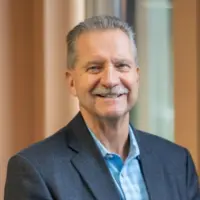
Jim Goodwin
President & CEO
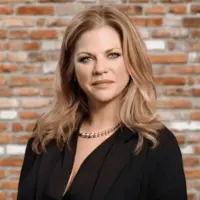
Tracey Decker
Chief Operating Officer

John Roberson
Chief Program Officer
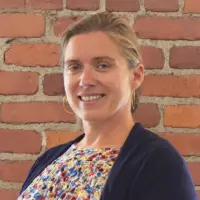
Lindsay Ciepiela
VP of Clinical Services
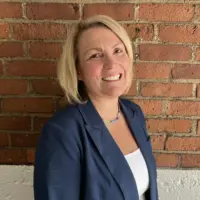
Robyn Ernst
VP of Adult Mental Health & Substance Use Services
Contact Information
332 Birnie Avenue
Springfield, MA 01107